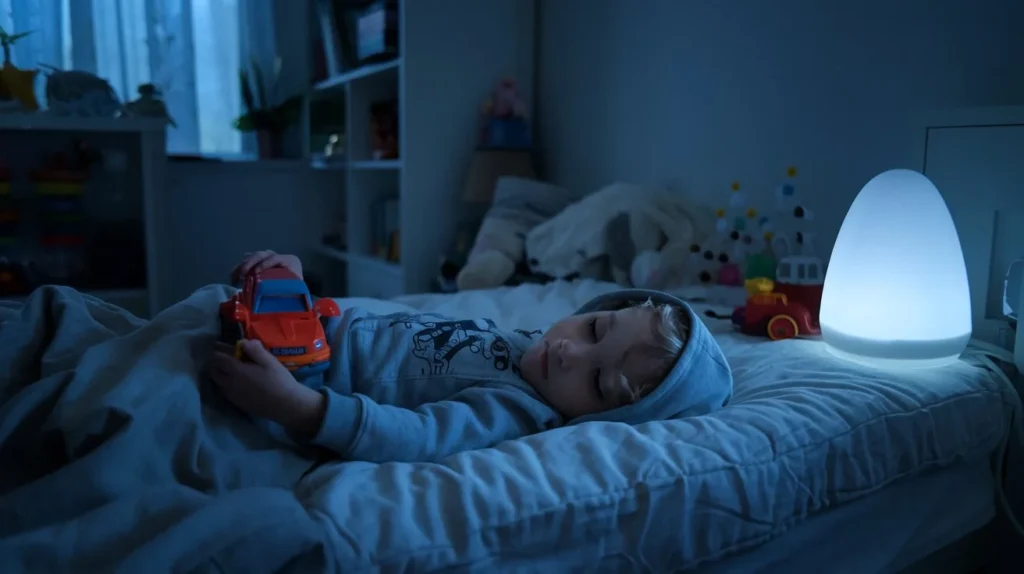The Effect of Sleep on Children’s Development
Table of Contents
Sleep is an essential component of childhood development. While children may often be resistant to bedtime, the importance of sufficient sleep cannot be overstated. Sleep affects various aspects of a child’s growth, including physical health, cognitive abilities, emotional regulation, and social skills. This article will explore the effects of sleep on children’s development, backed by cognitive research and reliable sources.
Understanding Sleep Stages
Before delving into the impact of sleep on development, it is crucial to understand the stages of sleep. Sleep is divided into two main types: non-REM (Rapid Eye Movement) and REM sleep. Each of these stages plays a unique role in overall health.
Non-REM Sleep
Non-REM sleep consists of three stages:
- Stage 1: The lightest stage of sleep, lasting a few minutes, where a child can be easily awakened.
- Stage 2: A deeper sleep where heart rate and body temperature drop. This stage constitutes about 50% of total sleep.
- Stage 3: The deepest stage of sleep, critical for physical restoration and growth. It is during this stage that the body repairs tissues and builds bone and muscle.
REM Sleep
REM sleep is characterized by rapid eye movement and increased brain activity. It is essential for:
- Cognitive development
- Memory consolidation
- Emotional processing
Children experience more REM sleep than adults, which underscores its importance during developmental stages.
The Impact of Sleep on Physical Development

Growth Hormone Release
One of the most significant effects of sleep on physical development is the release of growth hormones. According to the National Sleep Foundation, growth hormone is primarily secreted during deep sleep (Stage 3). This hormone is crucial for:
- Bone growth: Ensuring children grow to their full height.
- Muscle development: Facilitating the repair and growth of muscle tissues.
- Overall health: Supporting immune function and metabolism.
Weight Management
Lack of sleep can disrupt the balance of hormones that regulate hunger, leading to weight gain. Studies show that children who do not get enough sleep are more likely to become overweight or obese. A report published by the American Academy of Pediatrics (AAP) suggests that sleep deprivation affects leptin (which signals fullness) and ghrelin (which signals hunger), making children more prone to overeating.
Table 1: Sleep Recommendations by Age
| Age Group | Recommended Sleep Duration |
|---|---|
| Newborns (0-3 months) | 14-17 hours |
| Infants (4-11 months) | 12-15 hours |
| Toddlers (1-2 years) | 11-14 hours |
| Preschoolers (3-5 years) | 10-13 hours |
| School-age (6-13 years) | 9-11 hours |
| Teenagers (14-17 years) | 8-10 hours |
The Role of Sleep in Cognitive Development

Memory Consolidation
Adequate sleep plays a vital role in memory consolidation, allowing children to retain and recall information learned throughout the day. According to research published in the journal Sleep, sleep helps the brain process information and strengthens neural connections. This is particularly important for school-aged children who are constantly learning new skills.
Attention and Learning
Sleep deprivation can lead to difficulties in attention and learning. Children who do not get enough sleep may exhibit:
- Decreased focus and concentration
- Impaired problem-solving skills
- Lower academic performance
A study by the American Academy of Sleep Medicine found that children with insufficient sleep were more likely to struggle academically and experience behavioral issues in the classroom.
Emotional and Social Development
Emotional Regulation
Sleep has a profound effect on emotional regulation. A lack of sleep can make children more irritable, anxious, and prone to mood swings. Research indicates that sleep-deprived children are more likely to exhibit behavioral issues, including:
- Increased aggression
- Difficulty managing frustration
- Heightened emotional responses
Social Skills
Sleep also influences social development. When children are well-rested, they are better equipped to engage with peers, share, and cooperate. Conversely, sleep-deprived children may struggle with social interactions, leading to feelings of isolation and difficulty forming friendships.
Table 2: Behavioral Effects of Sleep Deprivation
| Sleep Deprivation Level | Behavioral Effects |
|---|---|
| Mild (1-2 hours less) | Irritability, decreased motivation |
| Moderate (3-4 hours less) | Increased emotional volatility, poor concentration |
| Severe (5+ hours less) | Aggression, hyperactivity, social withdrawal |
Strategies for Ensuring Healthy Sleep Habits
Establishing a Bedtime Routine
Creating a consistent bedtime routine is essential for helping children wind down and prepare for sleep. Some effective strategies include:
- Setting a regular bedtime and wake-up time, even on weekends.
- Creating a calming pre-sleep environment with dim lights and quiet activities.
- Engaging in relaxing activities, such as reading or taking a warm bath, before bed.
Limiting Screen Time
Excessive screen time can interfere with sleep quality. The blue light emitted by screens can disrupt the production of melatonin, a hormone that regulates sleep. Experts recommend limiting screen time at least one hour before bedtime and ensuring that children have a designated “screen-free” time.
Creating an Optimal Sleep Environment
A conducive sleep environment is crucial for restful sleep. Parents can ensure this by:
- Keeping the bedroom cool, dark, and quiet.
- Using comfortable bedding and pillows.
- Removing distractions such as toys or electronic devices.
FAQ
1. How much sleep does my child need?
The amount of sleep required varies by age. Refer to Table 1 for recommended sleep durations based on age groups.
2. What are the signs that my child is not getting enough sleep?
Common signs include irritability, difficulty concentrating, hyperactivity, and a lack of enthusiasm for activities.
3. Can sleep deprivation affect my child’s health?
Yes, chronic sleep deprivation can lead to physical health issues, behavioral problems, and cognitive impairments.
4. What can I do if my child resists bedtime?
Establish a consistent bedtime routine, set clear expectations, and create a calming sleep environment to encourage better sleep habits.
5. How can I help my child sleep better?
Encourage regular sleep schedules, limit screen time, and create a relaxing bedtime routine to help improve sleep quality.
Conclusion
The impact of sleep on children’s development is profound and multifaceted. From physical growth to cognitive abilities and emotional regulation, adequate sleep is crucial for children to reach their full potential. Parents must prioritize healthy sleep habits and create an environment conducive to restful sleep to ensure their children’s overall well-being and development. By understanding the importance of sleep and implementing effective strategies, families can foster a healthy lifestyle that benefits children’s growth and happiness.
References
- American Academy of Pediatrics. (2016). “Sleep: What Every Parent Needs to Know.”
- National Sleep Foundation. (2020). “Sleep in America Poll: Sleep and Academic Performance.”
- American Academy of Sleep Medicine. (2021). “Children’s Sleep Needs: A Comprehensive Overview.”
- Dewald-Kaufmann, M. et al. (2019). “The influence of sleep quality, sleep duration, and sleepiness on school performance in children and adolescents: A meta-analytic review.” Sleep Medicine Reviews.
- Centers for Disease Control and Prevention. (2022). “Sleep and Sleep Disorders.







